Gachagua’s Leadership Tested as He Balances Opposition and Mt Kenya Interests
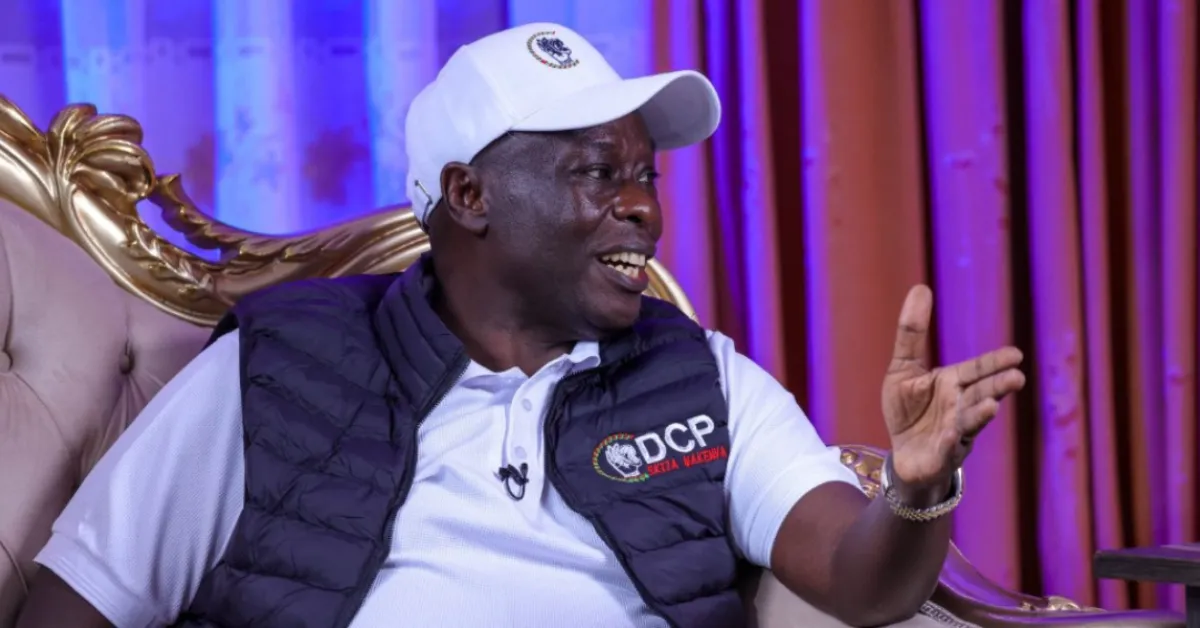
Former Deputy President Rigathi Gachagua has officially unveiled his new political party, the Democracy for the Citizens Party (DCP), setting the stage for a potentially transformative period in Kenyan politics leading up to the 2027 general elections.
While framed as a national movement, the party's initial strategies and support base are deeply entrenched in the Mt Kenya region, raising questions about its broader appeal and ability to mount a credible challenge to incumbent President William Ruto. The launch, characterised more as a soft introduction, occurred amid swirling speculations about Gachagua's ambitions and his strained relationship with President Ruto. An official, more elaborate launch is slated for June, an event widely seen as a critical litmus test to gauge the true extent of Gachagua's support and the party's national resonance.
Gachagua's Strategic Focus on Mt Kenya
Since his falling out with President Ruto, Gachagua's political efforts have been laser-focused on consolidating his position as the paramount leader of the Mt Kenya region. This populous and historically influential voting bloc is central to his strategy. Gachagua has publicly articulated his intention to build a party that champions the specific interests of Mt Kenya, with the long-term objective of forging alliances with other regional entities to challenge Ruto's bid for a second term.
This regional concentration carries significant risks. While it may prove effective in securing support within Mt Kenya, it could alienate voters in other parts of the country, thereby reinforcing the perception of ethnic-based politics. Such perceptions have been a persistent challenge in Kenyan democracy, hindering the development of a truly national political framework.
Leadership Structure and Key Appointments
The DCP's interim leadership structure, although featuring representatives from various regions, has been met with considerable scepticism. Beyond Gachagua himself and former UDA Secretary-General Cleophas Malala, most of the appointed officials are relatively unknown, prompting questions about the party's capacity to attract high-profile political figures and mobilise extensive support.
Malala's appointment as Deputy Party Leader is particularly noteworthy. Given his background in Western Kenya, it suggests an attempt to project a national image.
However, Malala's recent controversies, including the banning of a play he directed at Butere Girls High School, could overshadow his political effectiveness. The inclusion of former Agriculture Cabinet Secretary Mithika Linturi as National Organising Secretary has also drawn criticism. Linturi's tenure in the Agriculture ministry was marred by scandals, including allegations of distributing fake fertiliser, potentially undermining the party's credibility and providing ammunition for opponents. While Linturi maintains his innocence, the association with such controversies presents a liability for the DCP.
The presence of other former Members of Parliament and political operatives like Cate Waruguru, Peter Mwathi, and Maina Kamanda adds experience to the party's leadership. However, their limited national profiles raise doubts about their ability to substantially expand the party's reach beyond the Mt Kenya region.
Potential Opposition Alliances and Key Players
The absence of other prominent opposition figures, such as Wiper Party Leader Kalonzo Musyoka and former Interior Cabinet Secretary Fred Matiang'i, at the unveiling event has sparked considerable speculation. However, Gachagua's allies have downplayed this, suggesting that both Musyoka and Matiang'i will play significant roles at the official launch in June.
The potential alliance between Gachagua, Musyoka, and Matiang'i presents a significant challenge to Ruto's re-election bid. Musyoka, a seasoned politician and former Vice President, has twice been Raila Odinga's running mate and is determined to lead the opposition this time around. Matiang'i, while new to electoral politics, brings significant administrative experience and the backing of former President Uhuru Kenyatta's Jubilee Party.
Gachagua's endorsement is crucial for both Musyoka and Matiang'i, as his ability to sway the Mt Kenya vote could be decisive in the 2027 elections. However, Gachagua faces a constitutional hurdle: his impeachment as Deputy President would need to be overturned by the courts for him to run for president himself. Even without this obstacle, Gachagua seems to recognize that the current political climate is not conducive for a Mt Kenya candidate, given the region's historical dominance in Kenyan politics. He has pledged to support a candidate from another region, initially hinting at supporting Musyoka, even jokingly suggesting that the "A" in Gema (the Kikuyu, Embu, Meru Association) could stand for "Akamba," Kalonzo's ethnic group.
Emerging Rivalries
The entry of Matiang'i into the presidential race has introduced new dynamics and potential rivalries within the opposition alliance. Some of Kalonzo's allies have dismissed Matiang'i as a newcomer with limited political experience and a narrow ethnic base. They question his reliance on Kenyatta's patronage, given Kenyatta's failure to influence the 2022 elections in favor of Odinga. Gachagua himself has publicly stated that he will only support Matiang'i if he can demonstrate a strong grip on the Kisii vote and other parts of the Nyanza region. He has also suggested that Matiang'i should form his own political party, presumably one that commands the Kisii base, as a foundation for seeking broader support.
Gachagua's advice to Matiang'i may stem from concerns about Kenyatta's ability to influence the Mt Kenya vote. Since his fallout with Ruto, Gachagua has been working to consolidate his control over the region. However, his impeachment inadvertently created an opening for Kenyatta to regain some of his influence. Kenyatta's warning to Mt Kenya voters that they would regret not heeding his advice in the 2022 elections has gained traction, particularly in light of the economic hardships, high taxation, human rights abuses, and corruption that have plagued Ruto's administration. This has earned Kenyatta a degree of sympathy and respect, making his endorsement a valuable asset in the region.
Challenges to Gachagua's Regional Dominance
Gachagua's command of the Mt Kenya vote is therefore not guaranteed, especially if Kenyatta remains determined to support a candidate other than the one backed by the former Deputy President. A split Mt Kenya vote would significantly benefit Ruto, undermining the opposition's chances of victory. Despite these challenges, the emerging opposition alliance is attempting to present a united front, focusing on building their respective bases before negotiating on a single candidate. Gachagua is expected to hold Mt Kenya, Musyoka Ukambani, and Eugene Wamalwa, George Natembeya, and Mukhisa Kituyi, Western Kenya. Matiang'i's influence is currently limited to the Kisii vote, and he will need to broaden his appeal to become a viable national candidate.
National Political Landscape and Regional Influence
While there is widespread dissatisfaction with Ruto's rule across the country, the opposition lacks influential champions in many key regions. This is reflected in the relatively unknown figures who were unveiled as part of Gachagua's new party. Ruto's northern Rift Valley remains largely loyal, and Odinga's alliance with Ruto has shifted the political landscape in Nyanza and Western Kenya. The Coast region and North Eastern, traditionally considered Odinga strongholds, have also shown signs of shifting allegiance. However, the rise of the Gen Z movement, with its focus on issues beyond ethnic politics, could disrupt traditional voting patterns and create new opportunities for the opposition.
Kenya Kwanza also faces internal challenges. Odinga's emergence as a de facto second-in-command has raised questions about the role of Deputy President Kithure Kindiki and undermined his prospects of succeeding Ruto. Musalia Mudavadi, who dissolved his ANC party to join Ruto's UDA, has also been relegated in the pecking order. The coming months will be crucial as Gachagua refines his strategy and seeks to solidify his position as a key player in the opposition alliance. The official launch of his new party next month will provide a clearer indication of the figures who are prepared to defect from Kenya Kwanza and join his cause.

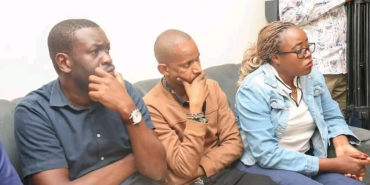
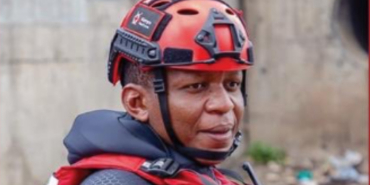
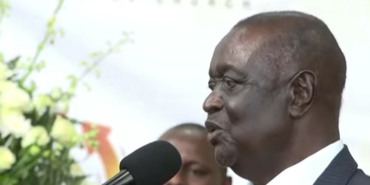

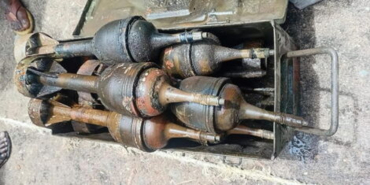
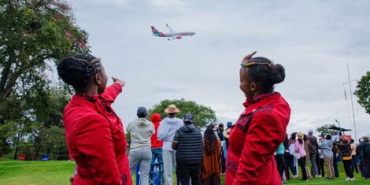
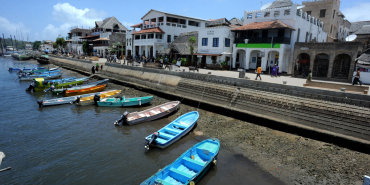
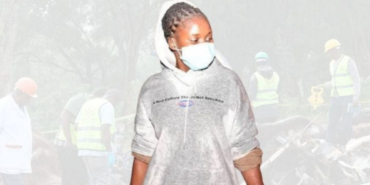
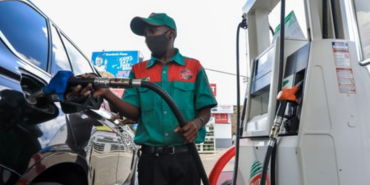



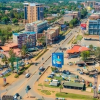
Add new comment